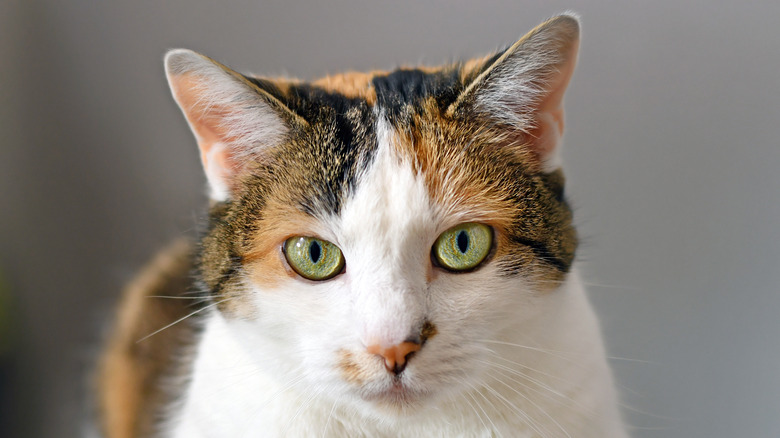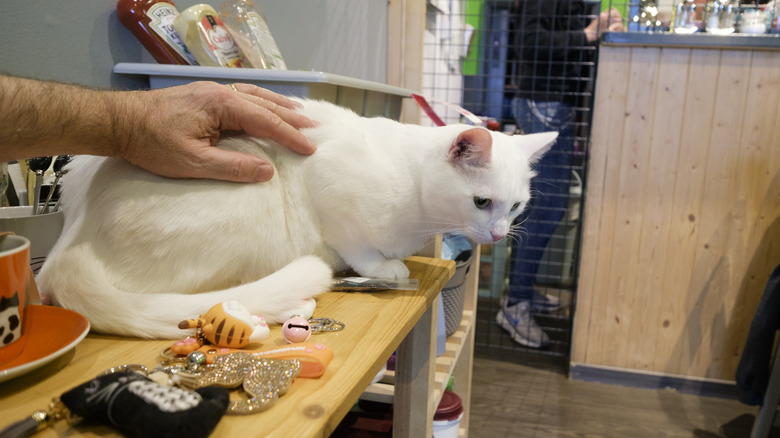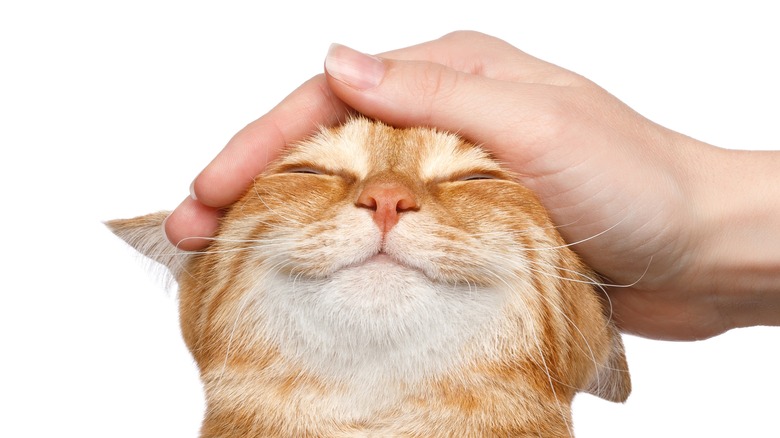The Scientific Reasons Cats Raise Their Butts When They're Scratched
Cats have been part of humans' lives for about 10,000 to 12,000 years, according to Smithsonian Magazine, although, as The Atlantic reports, the jury is still out on whether we domesticated them, they domesticated themselves, or, as some cat lovers theorize, they domesticated us. They've certainly provided a valuable service to humans over the millennia, controlling vermin, particularly in areas where grain is stored, as well as providing companionship. Unlike domestic dogs, who after centuries of selective breeding now have a wide range of sizes and shapes, cats have changed very little from their forest ancestors. About the only real difference between them and their ancient cousins is that domesticated cats tolerate humans and other cats; feral cats have little use for either.
Though (unlike dogs) cats don't care for it at all when you touch their exposed bellies, if you scratch a cat at the intersection where its lower back meets its tail, it's almost a certainty that it will raise up its butt as high as it can. What's that about?
Social bonding
Lots of animals are social creatures. Humans, most canine species, and dolphins, among others, are good examples. Others are almost completely solitary. Once they reach adulthood, they're on their own and prefer to be left that way. Domesticated cats' wild ancestor, felis silvestris, certainly falls into that category. But domestic cats? It's complicated.
One way social animals reinforce their bonds is through touch. It's why some humans enjoy having their hair stroked, for example. As Cat Checkup explains, cats have about 19 million nerve endings in their bodies, as opposed to the 5 million or so that humans have. As such, petting motions are particularly enjoyable for the cat. Of course, every cat lover will tell you that cats only enjoy being petted until they don't, at which point they'll find something else to do (best-case scenario), or give their petter a warning slap or bite (worst-case scenario).
The cat's butt region is particularly sensitive
Cats — and here we mean "domesticated cats who allow humans to touch them" — will generally make it a point to get their humans to touch them in places the cat can't reach on their own, such as underneath the chin or behind the ears, as Cat Checkup explains. So when you scratch your feline at the base of its back, you're scratching an area that it can't generally reach on its own, and she's probably going to be into it (until she isn't, that is). As Hepper adds, she may likely raise it up to get even closer to the source of the stimulation (in this case, your hand) as well as bringing its recipient nerves closer to the surface of the skin. The fact that they often purr while doing it suggests it's pleasurable.
There may be other reasons, as well. If your cat is female and not spayed, raising her butt up (when scratched or not) may be an indicator that she's going into heat. Similarly, kittens help their mothers groom them by raising their butt into the air as need be, so this behavior may simply be a vestige of your cat's kittenhood. And of course, cats, like dogs, communicate with each other through scent, so raising their butts may simply be the feline way of offering us a friendly greeting.


